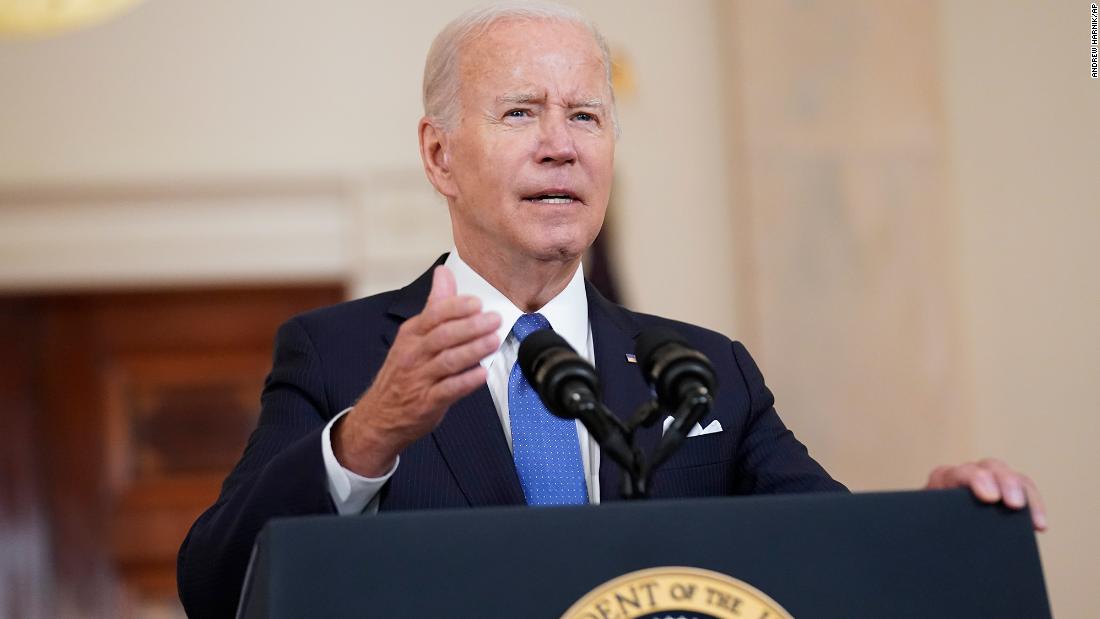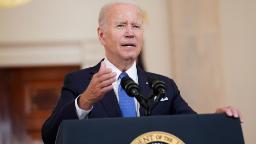

The bill amounts to the first major federal gun safety legislation in decades and marks a significant bipartisan breakthrough on one of the most contentious policy issues in Washington.
It also makes significant changes to the process when someone ages 18 to 21 goes to buy a firearm and closes the so-called boyfriend loophole, a victory for Democrats, who have long fought for that.
Securing a bipartisan agreement on major gun legislation has been notoriously difficult for lawmakers in recent years even in the face of countless mass shootings across the country.
Democrats in particular have been quick to celebrate the bipartisan gun deal since action to address gun violence is a major priority for the party.
The opinion is the most consequential Supreme Court decision in decades and will transform the landscape of women’s reproductive health in America.
The rulings once again highlight the limited power of the Democratic party, despite it controlling both branches of Congress and the White House.
House GOP leaders oppose bill, but bipartisan support still expected
Fourteen House Republicans voted for the bill, however. They included:
- Liz Cheney of Wyoming
- Adam Kinzinger of Illinois
- Tom Rice of South Carolina
- John Katko of New York
- Maria Salazar of Florida
- Chris Jacobs of New York
- Brian Fitzpatrick of Pennsylvania
- Peter Meijer of Michigan
- Fred Upton of Michigan
- Tony Gonzales of Texas
- Steve Chabot of Ohio
- Mike Turner of Ohio
- David Joyce of Ohio
- Anthony Gonzalez of Ohio
The bill passed the Senate on Thursday with 15 Republicans joining Democrats in support. The final tally was 65-33.
The legislation came together in the aftermath of recent mass shootings at a Uvalde, Texas, elementary school and a Buffalo, New York, supermarket that was in a predominantly Black neighborhood.
A bipartisan group of negotiators set to work in the Senate and unveiled legislative text on Tuesday. The bill — titled the Bipartisan Safer Communities Act — was released by Republican Sens. John Cornyn of Texas and Thom Tillis of North Carolina and Democratic Sens. Chris Murphy of Connecticut and Kyrsten Sinema of Arizona.
Lawmakers then raced to pass the bill before they left Washington for the July Fourth recess.
As lawmakers searched for a compromise, there were points at which it was not clear whether the effort would succeed or fall apart. But while the bipartisan effort appeared to be on thin ice after several key sticking points emerged, ultimately negotiators were able to resolve issues that arose.
Key provisions in the bill
The bill includes $750 million to help states implement and run crisis intervention programs. The money can be used to implement and manage red flag programs — which through court orders can temporarily prevent individuals in crisis from accessing firearms — and for other crisis intervention programs like mental health courts, drug courts and veterans courts.
The law isn’t retroactive. It will, however, allow those convicted of misdemeanor domestic violence crimes to restore their gun rights after five years if they haven’t committed other crimes.
The bill encourages states to include juvenile records in the National Instant Criminal Background Check System with grants as well as implements a new protocol for checking those records.
The bill goes after individuals who sell guns as primary sources of income but have previously evaded registering as federally licensed firearms dealers. It also increases funding for mental health programs and school security.
This story and headline have been updated with additional developments Friday.
CNN’s Ariane de Vogue, Lauren Fox, Ali Zaslav, Melanie Zanona and Jeremy Herb contributed to this report.
